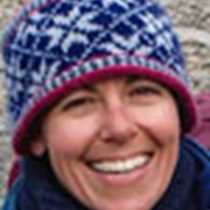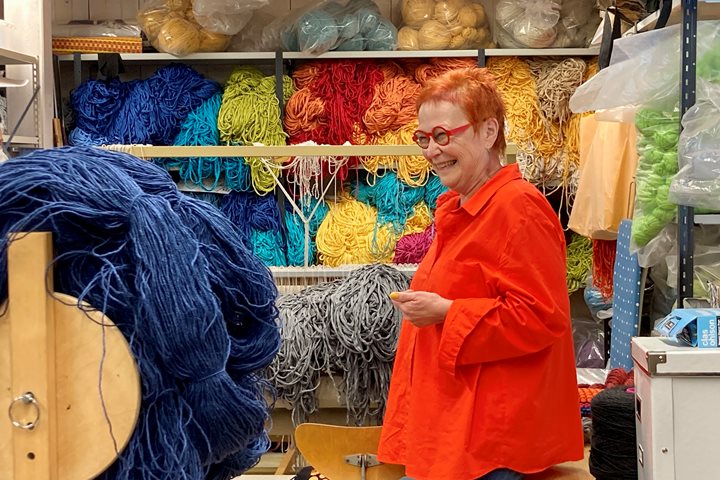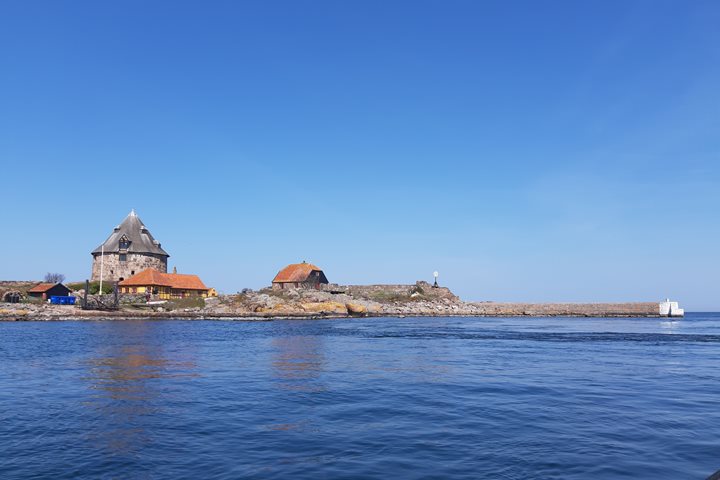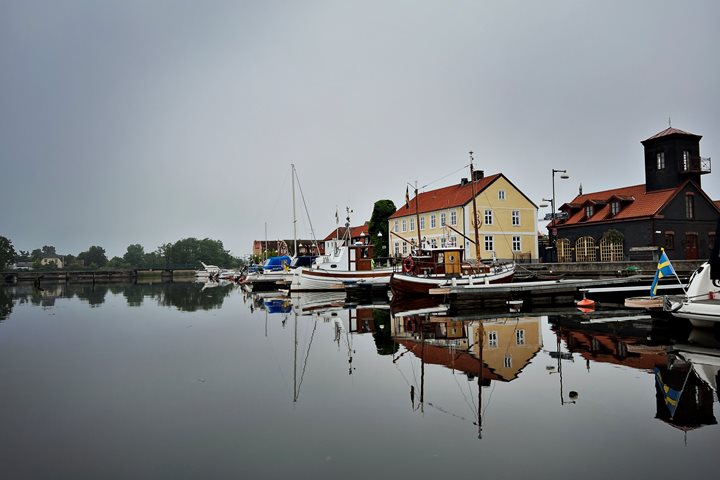Early this morning, National Geographic Explorer picked up our local pilot. We entered the Trave River on our way to the Queen City of the Hanseatic League, Lübeck, Germany. As we neared our docking position, the famous seven church spires came into view, lit by shafts of sunlight.
We disembarked by Zodiac and enjoyed a wonderful approach to the city. Our plan for the morning included a walking tour of the UNESCO World Heritage-listed city and her stunning Brick Gothic (and other styles) architecture. Our local guides explained the significance of Lübeck in the 1200s to the mid-1500s, including the surprising fact that she was equally as important to medieval trade as Rome, Venice, Pisa, and Florence. We easily saw the opulence and wealth of the period in the expensive glazed black bricks used in iconic structures, such as the Holsten Gate and the enormously high nave of St. Mary’s Cathedral. Luckily, the weather cooperated all day. The mix of blue skies and clouds made for an excellent backdrop to the copper-clad church spires and the wide variety of gable styles on warehouses, offices, and houses.
After lunch, we chose one of several options. One group traveled by coach to the seaside thermal bath resort town of Travemünde. We had passed this town early in the morning, and this was an opportunity to see the bustle of activity on the promenade, which was just recently completed. We boarded a little passenger ferry that took us over the River Trave for a visit to the Passat Flying-P tall-masted vessel and museum. The Passat was the highlight of the afternoon options. On this national holiday of the Ascension, we were treated to a special onboard concert of sailing songs from a local seafarers’ choir.
Back onboard, we rounded out the afternoon with German pretzels, beer, and Rotspon wine on the back deck as we sailed back down the River Trave to the Baltic Sea. Rotspon is an iconic Lübeck product. Red wine from Bordeaux, France is transported to Lübeck on large merchant cargo ships, and it is stored in wooden casks in cellars. The humidity and temperature conditions in Lübeck’s cellars are perfect for aging wine. At the height of production and interest in the 1800s, French military officers stationed here claimed that Lübeck’s Rotspon was even better than Bordeaux cellared in Bordeaux!
After dinner, we returned to the lounge for a wonderful concert from guest performers, Trine Lunau and Peter Sund. Together, they shared classic Danish folk songs as well as their own work–a perfect way to end an excellent first day in the Baltic Sea.







